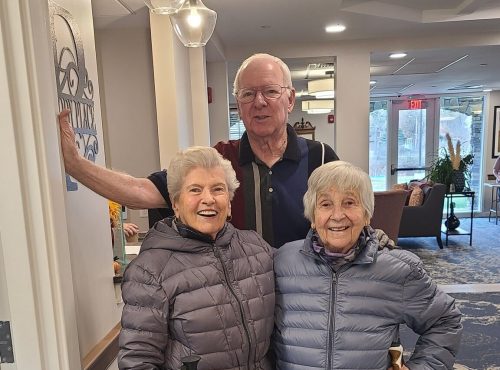Widespread loneliness in the U.S. poses health risks as deadly as smoking, according to new information from the U.S. Surgeon General, Dr. Vivek Murthy. According to the report, 50% of U.S. adults are experiencing loneliness that interferes with or otherwise affects their wellbeing. The ill-effects of loneliness can be even more detrimental for older adults.
The social and emotional health effects of loneliness have been well documented. These effects were exacerbated during the isolation periods during the COVID-19 pandemic. Now, new information shows the ill-effects of loneliness carry over to a person’s physical health.
According to the Surgeon General’s report, the “epidemic of loneliness threatens public health”:
- Loneliness increases the risk of premature death by nearly 30%.
- People with poor social relationships have a 32% higher risk of stroke and 29% higher risk of heart disease.
- Loneliness increases a person’s risk for anxiety, depression, and dementia. Individuals struggling with these conditions tend to be less physically active, thereby affecting their physical health.
- Loneliness can increase risk for accidents and even suicide.
Murthy’s report indicated the increased risk of premature death associated with social disconnection is comparable to smoking. However, the report did not provide any data that illustrates how many people die directly from loneliness or isolation.
Loneliness Prevalent Among Elderly
Among older adults over age 60, 50% are at risk of social isolation and one-third will experience some degree of loneliness in later life. Older adults who self-isolate or who experience loneliness as a result of loss of significant relationships have a heightened risk to their mental and physical health.
Social circles among the elderly tend to shrink due to loss of functional abilities, illness, and death of significant friends and partners. Therefore, it is imperative for older adults to have healthy outlets for connecting with others and maintaining a sense of meaning and purpose for their lives.
Helpful Tips to Reduce Loneliness Among Older Adults
Stay Active. Whether it’s a walking buddy or group, participating in aqua-exercise classes, or trying chair yoga, physical movement is as good for the mind as it is for the body. For older adults, appropriate intensity exercise boosts mood, strengthens the mind-body connection, and keeps the body physically strong. Physical activity with a partner or group reduces social isolation and reduces risk for mental distress and depression.
Keep Good Company. The old saying is ‘misery loves company’, but the same can be said of positivity! It’s well-known that laughter is good medicine. Choose to spend time with others who make you laugh or whom you make laugh. For those who are home-bound, be sure they have frequent visitors—or consider the benefits of pet therapy to help an older adult cope with loneliness.
Keep the Mind Sharp. Engage in intellectual activities with others who share the same interest such as chess club, book club, arts and crafts club, board game groups, maybe something more intellectual. Not sure about your interests…be adventurous, try something new… it’s a great way to find a new hobby and new friends!
Do Good For Others. Helping others through volunteer work is a great way to build and maintain social connections. Plus, doing good for others through volunteerism has lasting beneficial effects on health and wellbeing for older adults. Older adults who volunteer experience better physical health, less depression and anxiety, and have a brighter outlook and sense of purpose for their life.
Senior Living Programs to Reduce Loneliness
Every resident at Peabody Place has access to a wealth of programming, which helps older adults maintain good health, independence, connection with like-minded others. Our approach is personalized to the needs of each resident to best support their emotional, social, and physical wellbeing. From individualized movement and fitness programs to movie nights and special interest clubs, our residents are inspired as they engage in activities that support living, learning, and laughing throughout the golden years.





